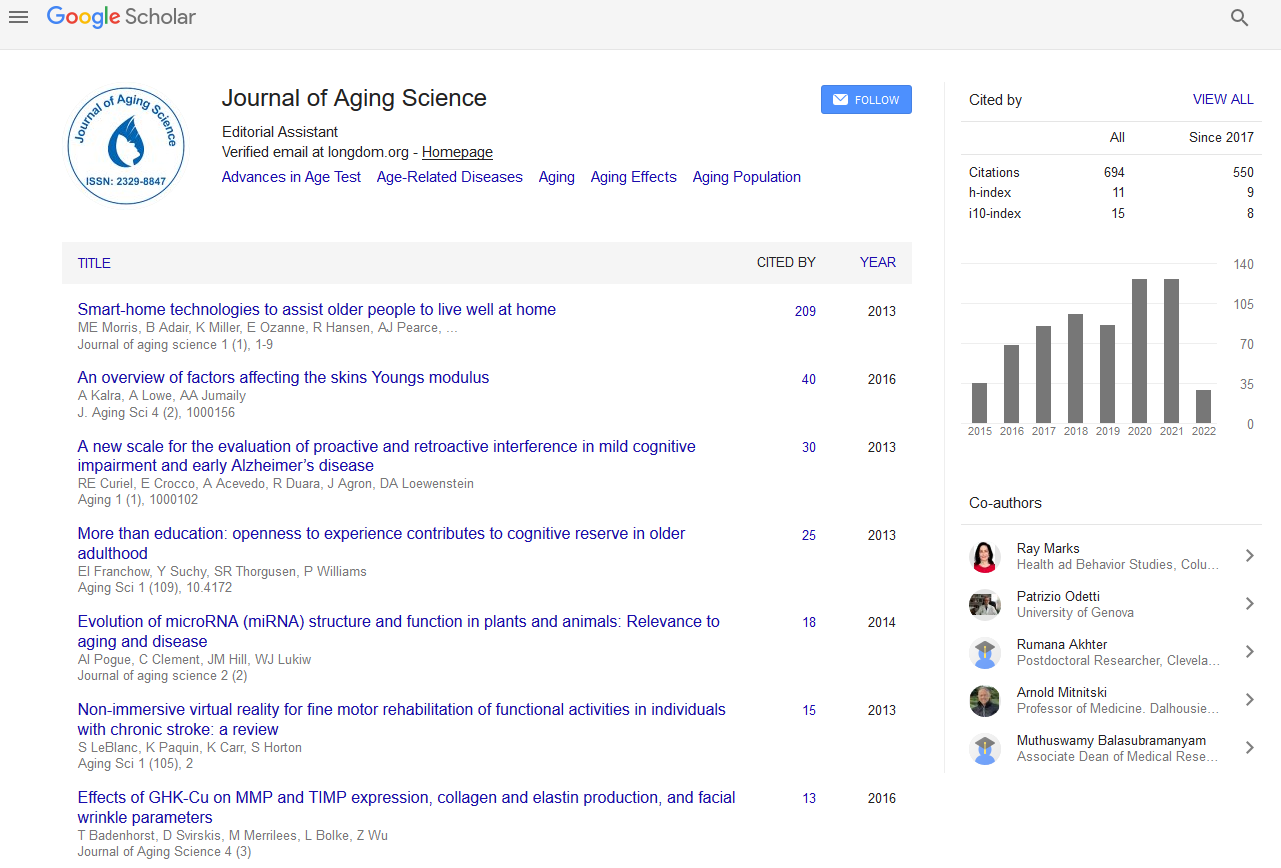PMC/PubMed Indexed Articles
Indexed In
- Open J Gate
- Academic Keys
- JournalTOCs
- ResearchBible
- RefSeek
- Hamdard University
- EBSCO A-Z
- OCLC- WorldCat
- Publons
- Geneva Foundation for Medical Education and Research
- Euro Pub
- Google Scholar
Useful Links
Share This Page
Journal Flyer

Open Access Journals
- Agri and Aquaculture
- Biochemistry
- Bioinformatics & Systems Biology
- Business & Management
- Chemistry
- Clinical Sciences
- Engineering
- Food & Nutrition
- General Science
- Genetics & Molecular Biology
- Immunology & Microbiology
- Medical Sciences
- Neuroscience & Psychology
- Nursing & Health Care
- Pharmaceutical Sciences
MENTAL HEALTH IMPLICATIONS OF CAREGIVER BURDEN AND ROLE TRANSITION
International Conference on Aging & Gerontology
August 8-9, 2016 Las Vegas, USA
Philip Franklin Daniels
University of Florida, USA
Scientific Tracks Abstracts: Aging Sci
Abstract:
Dementia is on the rise: Caregiver�??s are the �??silent victims.�?� This workshop will provide an overview of mental health implications of caregiver burden and role transition. Mental health of caregivers will be explored through the lens of stress theory, role theory, grounded optimism, grief, communication skills, and coping skills. The need for help and support that individual and family interventions provide may improve the quality of life for the caregiver, which in turn may improve the quality of life for the care recipient. Specific mental disorders that will be covered include depression, anxiety, and substance use. With the movement of �??aging in place,�?� there is an inevitable need to address the current rising needs of caregivers and individuals with dementia. Worldwide, dementia affects 36 million individuals; this number is on the rise. By the year 2050, it is expected to increase to 115 million individuals. In the United States, approximately 61.6 million caregivers provided in-home care in 2009. Being that this is unpaid work, there was an estimated cost $450 billion, which increased from $375 billion in 2007 (Robinson et. at., 2013; Chiao, et. al., 2009). Evidence points to a need for awareness, advocacy, and competencies as counselors help mediate the effects of caregiver burden. This presentation is multi-theoretical to capture the intersections of stress theory, role theory, grounded optimism, and speech accommodation theory in order to best serve clients in need.
Biography :
Philip Daniels is a doctoral student in counselor education, and earning a Masters in aging and geratric practice. He has a Masters in professional counseling and marriage and family therapy. His experiences include volunteer and professional roles working with clients in hospice, memory disorder units, mental health and rehabilitation units, and community agencies conducting individual or family interventions. Specific expertise’s include clinical practice and counselor education in the following areas: marriage and family therapy, dementia, caregivers of individuals with dementia, death and dying, end-of-life issues, grief and variations e.g. anticipatory & complicated, trauma, LGBT, substance abuse, and transcultural counselor competencies.
Email: pdaniels@ufl.edu


